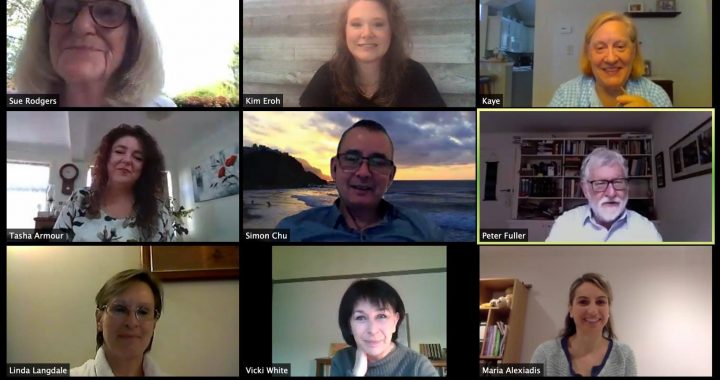It has been an exciting start to the second half of the year for a rare ovarian cancer called Granulosa Cell Tumour (GCT). Previously GCT has received very little research to be able to have standard protocols for treatment.
Consumers from around the world are helping researchers at the Hudson Institute of Medical Research in Melbourne Australia to gain more insight into this rare disease with collected data information from the GCT Survivor Sisters and tumour tissue samples from patients.
Kim Eroh the founder of the Facebook group GCT Survivor Sisters in 2012 created the group to be able to support and network with other females that have been diagnosed. Mrs Eroh explains from the early days the GCT group efforts were centred on supporting each other but also creating a database of information collected from members when they joined and regularly updated. Today the group has over 1200+ members world-wide.
Their data base information is to be used as Real World Data (RWD) which is recognised by the Food and Drug Administration (FDA) and will be analysed with expert help from Professor Vicki White as part of the research. The outcomes from the RWD is to help identify gaps, improve treatment and patient outcomes.
The Hudson Institute of Medical Research/ Monash University Lead by international GCT experts Professor Peter Fuller and Dr Simon Chu were awarded $2.2 million for GCT research.
The grant will allow the team to build on progress already made in understanding and fighting GCT that impacts females of all ages from babies to menopausal women. GCT Survivor Sister members Kaye Ackermann, Linda Langdale and Sue Rodgers help bring a greater consumer diversity with the RWD but also working with Maria Alexiadis a Senior Research Assistant at the Hudson Institute to coordinate tumour sample collection from around the world for the research. The tumour samples will be used to identify genetic mutations that causes GCT, develop more efficient, cost effective testing and further investigate personalised and combination therapies.
Dr Chu explains the importance of consumers being involved with this research. Our collaboration with consumers and patient advocates brings a perspective of our research to another level. To hear of their journeys, their experiences and the things that matter to them most, not only informs us of where our research focus should be, but also inspires us to work harder to make those dreams a reality.
Tasha Armour the founder and CEO of Rare Ovarian Cancer Inc (ROC Inc.) and the ROC Inc team have been part of the push and advocating to the Australian Health Minister Hon. Greg Hunt for the Consumer Driven Grant for federal funding for both subtypes of GCT, Adult Granulosa Cell Tumour (aGCT) and the type her daughter was diagnosed with at 16 year old Juvenile Granulosa Cell Tumour (jGCT).
Ms Armour shares her involvement for the research; This is the first time that jGCT has received federal funding from the Australian governments Medical Research Future Fund (MRFF). I am very excited and honoured to be a part of this research as a Consumer Chief Investigator. A recent virtual meeting to introduce the team that will be centered around involving consumers in the research to better understand GCT and the consumers perspective. This is one part of the multi prong approach for the research. It is a significant step towards better outcomes for GCT patients and their families. We have a long way to go but you must take steps to start a journey and this research is a big step forward for answers for not only my daughter’s future but also for so many girls to women.
If you would like more information about how to donate tumour samples or more information about the research please contact Tasha Armour tasha@rocinc.org.au
